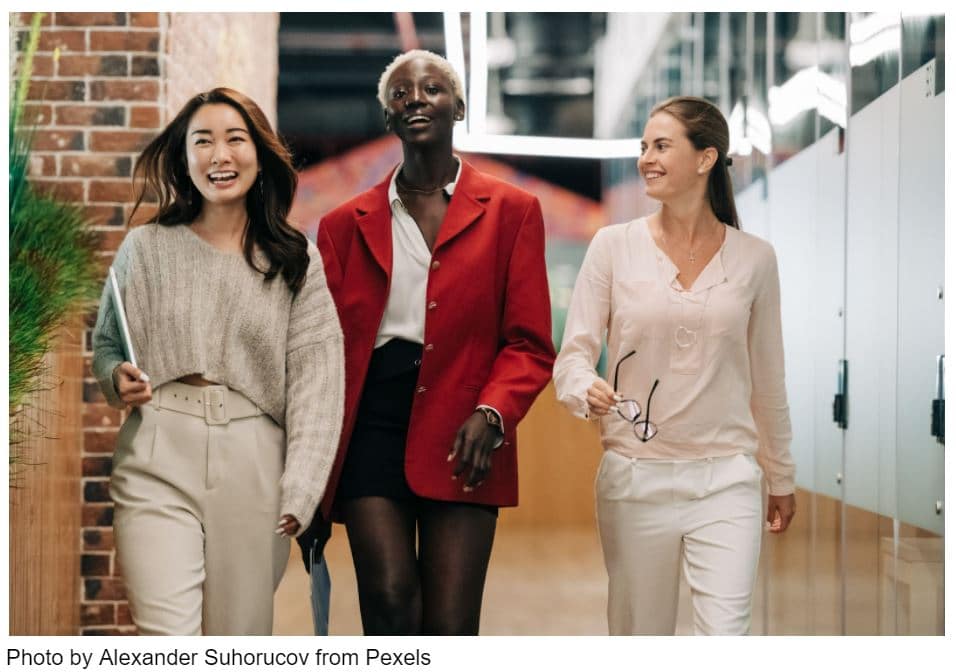
A Rich History of Female Leaders in Central Pennsylvania
And the Origin Story of Women’s History Month
Written By: Christy S. Renjilian
How long have women been celebrated for advocating for themselves in the workplace?
Since the early 1900s.
More specifically, in 1909, when the Socialist Party of America declared the first National Women’s Day to honor the women who participated in the 1908 garment workers’ strike in New York City. This holiday was implemented after 15,000 women flooded the streets of New York City in hopes of better pay, working conditions, and voting rights.
One year later, during the International Conference of Working Women in Copenhagen, a German activist named Clara Zetkin proposed the idea of an International Women’s Day. All seventeen countries in attendance agreed.
And on March 8, 1911, the first International Women’s Day was celebrated. Austria, Switzerland, Germany, and Denmark particiapted with enthusiam. But it wasn’t until the United Nations began sponsoring it in 1975 that the United States widely recognized it, too.
And it has continued to gain momentum.
But it still took years for us to recognize Women’s History Month. A local education task force celebrated ‘Women’s History Week’ in 1978 in Santa Rosa, California when they met to review the status of women. And the organizers chose the second week in March to correspond with International Women’s Day.
It spread across the country in the years to follow. And in 1980, a group of community leaders and historians, led by the National Women’s History Project, successfully lobbied for national recognition. That same year, President Jimmy Carter declared the week of March 8th as National Women’s History Week.
Each President that followed continued to proclaim a National Women’s History Week in March.
And finally, in 1987, Congress passed a law to designate March as Women’s History Month.
Fast-forward to current, and this year’s theme is Women Providing Healing, Promoting Hope.
To celebrate the month—and our region—let’s take a look back at four women who have provided healing and hope to our community.
Influential Female Leaders in Central Pennsylvania
You know that our region is full of history, but do you know the story of these four women who made waves with their resolve, determination, and leadership?
Let’s learn from four of the greats.
- Loretta Claiborne: a global speaker and groundbreaking multi-sport athlete
Loretta was born in 1953 in York, Pennsylvania. She was born partially blind, with an intellectual disability and abnormal feet. After surgeries to correct her feet and visual impairment, she was finally able to walk at four years of age and talk at the age of seven.
When Claiborne was 17, a school counselor suggested she participate in the newly-formed Special Olympics. And she did just that, competing in the Special Olympics from 1970-2003 in various distance running events, bowling and figure skating.
She won six gold medals and many bronze and silvers. And Loretta has completed and placed in over 25 marathons.
In 2000, her life was the subject of a television film, “The Loretta Claiborne Story.”
She has held many leadership roles, including on the Special Olympics Pennsylvania Board of Directors and the Special Olympics International Board of Directors. Loretta received three honorary doctorate degrees, including one from York College of Pennsylvania.
And in 2001, a medical and educational facility in her home community of York, Pennsylvania was named the Loretta Claiborne Building in her honor.
- Delma Rivera: secondary education teacher, activist, and humanitarian
Born April 15, 1929, in Aguadilla, Puerto Rico, Delma became a secondary education teacher after graduating from the University of Puerto Rico. She moved with her husband, Dr. Edwin Rivera, to York in 1962, where they were immediately concerned about the Latino community—seeing issues ranging from education, health, and housing inequality to racism and high unemployment rates.
Spanish-speaking children weren’t receiving a quality education because there were no bilingual programs or bilingual teachers in the city school. And healthcare was a concern, too, as there were no interpreters at York Hospital.
To lead the change, Delma and her husband co-founded the York Spanish Council in 1973—now the York Spanish American Center. She advocated, educated, fundraised, and served on many boards. She was recognized by the York Pennsylvania Branch of the NAACP for her part in advancing civil rights and equal opportunity for all and was an original member of the Governor’s Council for Hispanic Affairs.
Delma was presented a key to the city of York for her efforts and the 200 block of East Princess Street in York is now dedicated to her and her husband.
- Elizabeth Thorn: caretaker of Evergreen Cemetery and war hero
We’re going back a bit further to recognize Elizabeth Thorn. Elizabeth and her husband Peter emigrated from Germany to Gettysburg, Pennsylvania in 1855. And after her husband enlisted in The Civil War, Elizabeth stepped in to be the caretaker of Evergreen Cemetery.
When the war raged near her town, during the Battle of Gettysburg, Elizabeth and her family were ordered to leave for safety. And when the fighting ended, Thorn and her family returned home and found it destroyed by artillery, with wounded soldiers in her home and most of her possessions stolen.
Thorn did her best to care for the soldiers, and once those that healed left she was ordered by the military to start burying the soldiers who perished near her home. Elizabeth—who was six months pregnant at the time—hand-dug over 100 graves.
Her husband, Peter Thorn, returned after the war, and the couple lived together until 1907.
And in 2002, a beautiful statue was dedicated in her honor and stands as a symbol for the millions of women who endured hardship, loss, and pain during the war.
- Dr. Elizabeth Reifsnyder: trailblazing medical surgeon and pioneer
In 1858, Dr. Martha Elizabeth Reifsnyder was born in Liverpool, Pennsylvania. She attended Millersville State Normal School (now Millersville University of Pennsylvania) and then Woman’s Medical College of Pennsylvania, one of the first medical colleges in the world to award women a degree in medicine.
Dr. Reifsnyder graduated from medical school in 1881 and moved to China soon after, where she opened a hospital exclusively caring for women and children—the first of its kind in that part of the world. She was a pioneer, advancing modern medicine and performing heroic surgeries.
But when she opened the Margret Williamson Memorial Hospital in Shanghai, she struggled to get patients. But she perservered. Her reputation quickly grew after she operated on a female patient with a large cyst—draining many gallons of fluid. Over time she expanded her medical campus, which became one of the greatest hospital units in the entire region. It still stands today, and is now named the Red House Hospital.
Dr. Elizabeth Reifsnyder would occasionally make the long trip home to Pennsylvania to visit her family. She passed away in her hometown of Liverpool at the age of 64.
As you can see, our region is rich in history and has been impacted by the remarkable efforts of these four women—and thousands of others.
Loretta Claiborne, a highly accomplished, multi-sport athlete born to a single mom in York City who believed in her daughter—and her seven other children.
Delma Rivera was a true humanitarian and advocate who recognized disparity and brought about change for the Hispanic community.
Elizabeth Thorn was a wife, mother, and caretaker who stepped in to serve when her husband joined the Civil War efforts. She heroically cared for and buried soldiers.
Dr. Elizabeth Reifsnyder was a groundbreaking medical surgeon who improved healthcare outcomes for countless women and children in China and paved the way for thousands of women to follow in her footsteps.
Impressive women who provided healing and promoted hope.
And an inspiration to us here at Community Connections for Children, reminding us of how far our region has come, and how much further it has to go. We pledge to continue striving for progress and equality—to ensure all families have access to affordable, high-quality child care choices that lead to success in school and life.
More Information About These Iconic Women
About Community Connections for Children, Inc.
Community Connections for Children, Inc. (CCC) is a nonprofit centered in the heart of Pennsylvania. They serve childcare providers and low-income families ‒ the ones that have been impacted the most by the pandemic.
For you and your business, CCC helps keep childcare options open for your employees ‒ saving missed work hours and lowering on-the-job stress levels. They work with early childhood education programs and home-based providers to improve the quality of care, ensuring that all children enter school ready to be successful.
Christy Renjilian serves as its Executive Director.
To learn more, visit childcareconsultants.org.

